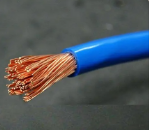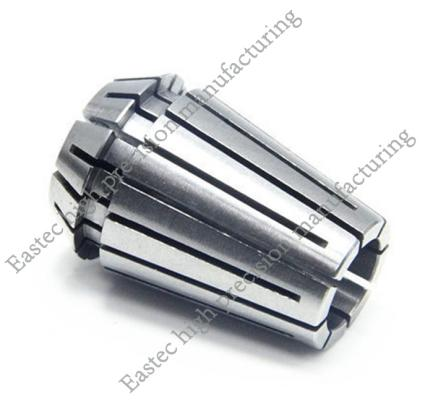On April 2, 2025, the Trump administration announced a 54% comprehensive tariff on China (10% basic tariff + 34% reciprocal tariff), with mechanical and electronic products bearing the brunt. For CNC machine tools, known as the "mother machines of industry," the import costs of core components such as servo systems and high - precision ball screws will surge by more than 50%.
This policy directly impacts the core areas of China's exports to the US. The price competitiveness of products like CNC machine tools, industrial robots, and construction machinery has been significantly weakened. Take a CNC machine tool priced at $100,000 as an example. After the tariff, the cost will soar to $154,000, significantly reducing the price advantage of related Chinese products in the US market. However, it's worth noting that many domestic leading enterprises said that although they face short - term pain, the actual impact is controllable. This technological blockade has instead accelerated the domestic substitution process of core components such as servo motors and precision guide rails.
1. Policy and Demand Dual - Drive: Domestic Substitution Enters an Acceleration Phase
High - end equipment is the "backbone" of the manufacturing industry and an important foundation for implementing the strategy of building a manufacturing powerhouse, promoting new - type industrialization, and developing new - quality productivity. Currently, over a hundred high - end equipment manufacturing enterprises have gathered on the Sci - tech Innovation Board. They cover advanced process equipment such as industrial mother machines, industrial robots, and laser processing, and their downstream applications span key areas of national economy and people's livelihood, including rail transit, automobiles, electricity, aviation, and logistics, providing key equipment support for the transformation and upgrading of China's manufacturing industry. In the field of domestic machine tools, remarkable progress has been made in technological innovation and market expansion.
There has been a major breakthrough in the localization rate. The five - axis gantry machining center developed by Nantong Guosheng Intelligence achieved domestic substitution, with a price only 50% of that of imported products. The core component autonomy rate of Kede CNC reached 85%, filling the gap in the aerospace field. The installed capacity of Shenyang Machine Tool's i5 intelligent system increased by 210% year - on - year. In recent years, Huazhong CNC has continuously made breakthroughs in core technology research. By benchmarking against foreign advanced high - grade CNC systems, the Huazhong 8 - type high - grade CNC system it developed has reached international advanced levels in terms of function, performance, and reliability, achieving import substitution. There has also been a major breakthrough in technological research. Through independent research and development, Kede CNC launched the KTBM 1200 six - axis five - linkage blisk machining center, which achieved 100% localization of core components. Its emergence has enabled China to completely break through the technological blockade of Germany, Japan, and other countries in the field of precision machining and has significantly increased the processing efficiency by three times. At the same time, the reliability of domestic high - end machine tools has also been greatly improved. Relevant data shows that the mean time between failures (MTBF) of domestic high - end machine tools has significantly increased from 800 hours in 2018 to 2000 hours in 2024.
2. Most Sci - tech Innovation Board Companies Say "Impact is Small and Generally Controllable"
In the field of intelligent manufacturing, the overseas revenue proportion of many Sci - tech Innovation Board companies is not low. A person from the securities department of Junpu Smart told the reporter of Sci - tech Innovation Board Daily, "The company's revenue from the US accounts for a relatively small proportion. The largest is from Europe, followed by the domestic market. The company has a factory in the US, and the overall impact of the tariff on the company is still under assessment." According to its 2024 semi - annual report, the company's overseas revenue accounts for over 70% of the total revenue.
A person from the securities department of Xianhui Technology told the reporter of Sci - tech Innovation Board Daily, "The company's export business to the US is relatively small, and the business exported to Europe accounts for the largest proportion. The company will continue to pay attention to the impact." According to its 2024 semi - annual report, the company's overseas revenue accounts for over 30% of the total revenue.
A person from the securities department of Oukeyi, a producer of cemented carbide products and CNC tools, told the reporter of Sci - tech Innovation Board Daily that the company's tool products are currently not within the scope of the "reciprocal tariff," but whether downstream customers are affected remains to be evaluated. It is reported that the company mainly purchases tungsten, the raw material, domestically, with a stable supply. The company has long - term cooperation with major suppliers and can control raw material costs by flexibly adjusting the procurement method, which will not have a substantial impact.
In the field of CNC machine tools, Kede CNC said that the company's core technology and component procurement do not involve products originating from the US. Therefore, China's additional tariffs on the US have not impacted the cost of the company's five - axis linkage CNC machine tool products. The company has long adhered to the independent research and development of key functional components, including five - axis CNC systems, servo drives, motors, turntables, tilting heads, electric spindles, and serialized sensors. Through the localization of the supply chain and domestic substitution, it has effectively avoided the risk of being technologically bottlenecked in core components and also reduced cost fluctuations caused by uncertainties such as trade wars.
In the semiconductor field, regarding the impact of the US - announced so - called "reciprocal tariff" policy, Wang Jue, the vice general manager and secretary of the board of directors of Espressif Systems, told the reporter of Sci - tech Innovation Board Daily, "Although tariff factors may indeed impact the market demand in specific regions of the US, the company's steady growth mainly benefits from the deep penetration of digitalization in various industrial fields. Globally, whether in the Chinese market or other overseas regions, downstream application scenarios are constantly expanding, generating more digitalization demands. This trend has promoted the continuous expansion of the industry. Our strategy is to continue to expand new application scenarios."
A relevant person from the securities department of Montage Technology told the reporter of Sci - tech Innovation Board Daily, "Currently, few customers require product delivery in the US. In 2024, the revenue from products delivered in the US accounted for less than 1% of the company's total revenue. The US's additional tariff policy has little direct impact on the company, but the impact on the entire upstream and downstream supply chain still needs further observation. Relevant measures will be formulated according to the trend. Currently, the US's additional tariffs have not affected the sales in other regions, and the company's business is operating normally."
Regarding semiconductor equipment, a relevant person from the securities department of AMEC told the reporter of Sci - tech Innovation Board Daily, "The company's overseas revenue accounts for a relatively small proportion, and the impact is generally controllable. Currently, some raw materials need to be imported, but the volume is not large, and the proportion is not high."
Liu Chunsheng, an associate professor at the Central University of Finance and Economics, said that for listed companies in key industries and those with a large proportion of export business, they can respond to tariff impacts and reduce risks by building factories in overseas low - tariff regions, optimizing the supply chain to adjust the production layout; exploring emerging markets and deeply cultivating the domestic market to achieve diversified market expansion; strengthening technological innovation to increase product added value and promote industrial upgrading; and paying attention to policy dynamics and participating in policy communication.





 Customer service 1
Customer service 1  Customer service 2
Customer service 2